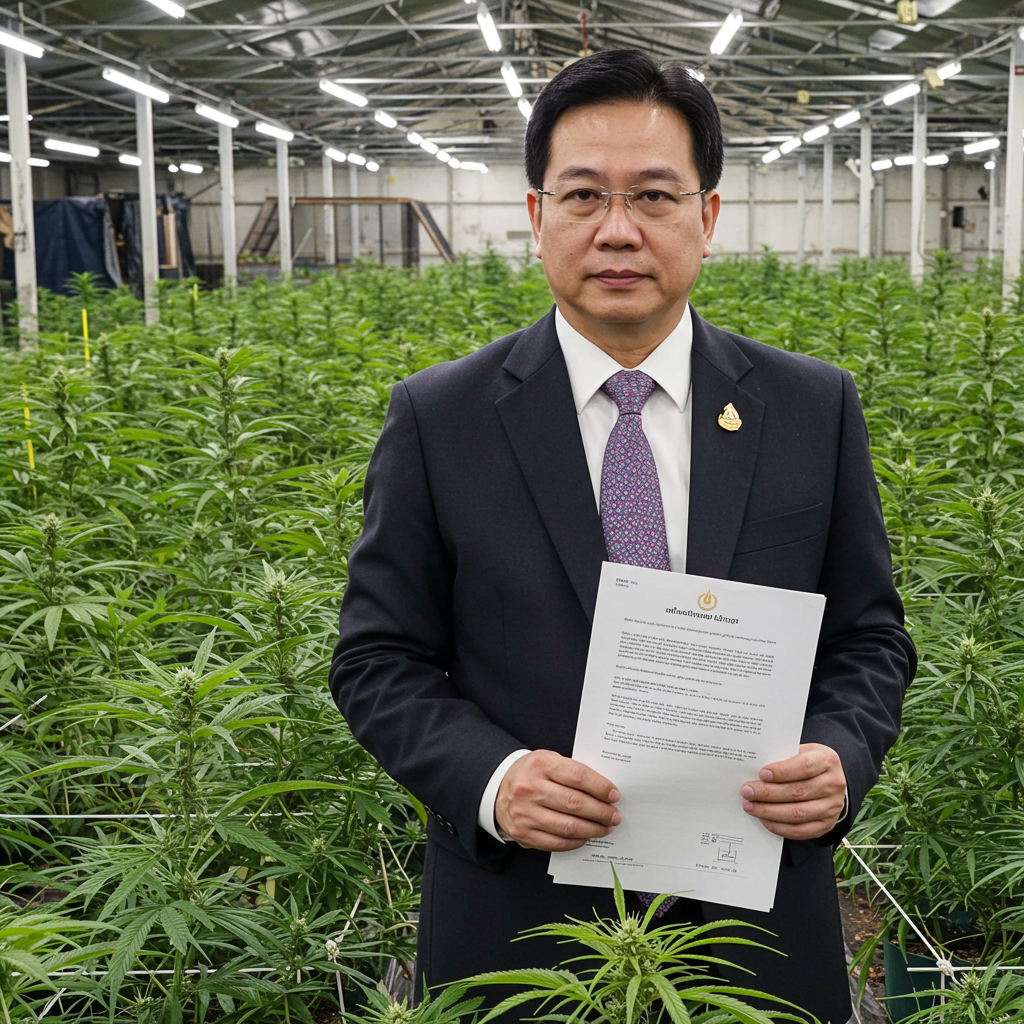Thailand is undergoing a significant shift in its approach to cannabis regulation, attempting to bring order to a market that rapidly transformed into what many describe as a “weed wild west” following decriminalization in 2022. This push for stricter rules is driven by both domestic concerns and increasing international pressure, particularly from the United Kingdom, where authorities are seeing a dramatic surge in smuggled Thai cannabis.
New Rules Signal Regulatory Shift
The Thai government recently approved new measures designed to rein in the booming industry. Effective June 2024, a key change restricts the sale of cannabis products to those with a doctor’s prescription. This is a stark departure from the open market that emerged after the plant was removed from the narcotics list. Furthermore, the public health minister has indicated plans to re-criminalize recreational consumption, though the exact timeline for this remains uncertain.
Since the 2022 decriminalization, Thailand has seen an explosion of cannabis businesses. There are now an estimated 11,000 registered dispensaries across the country. In popular tourist areas like Bangkok’s Khao San Road, cannabis shops are ubiquitous, their presence marked by vibrant neon signs and the distinct smell of smoking cannabis. Derivative products like edibles (brownies, gummies) became widely available, often sold openly online and delivered within an hour, despite being technically illegal.
Political Roadblocks and Vested Interests
The journey towards a regulated market has been fraught with challenges. The initial plan following decriminalization was to quickly pass a comprehensive new legal framework. However, this failed to materialize, reportedly due in part to political disagreements and alleged obstruction by vested interests within the cannabis industry. A new draft law was prepared last year but could still be up to two years away from enactment. This regulatory vacuum has been a major factor contributing to the uncontrolled market.
UK Smuggling Crisis Escalates
A primary catalyst for the current regulatory push is the escalating problem of cannabis smuggling to the UK. UK drug syndicates are actively recruiting often young and naive travelers as couriers, tempting them with cash to carry suitcases packed with cannabis on flights from Thailand.
The scale of this issue is significant, according to the UK’s National Crime Agency (NCA). Interceptions have risen sharply: the NCA reported catching 142 couriers carrying 5 tonnes of cannabis in 2023. This number skyrocketed to 800 couriers carrying 26 tonnes in 2024, and authorities indicate the numbers continue to rise this year.
The consequences for those caught are severe. This year alone, 173 individuals, predominantly involved in smuggling cannabis from Thailand, have been sentenced in UK courts, receiving combined prison terms totaling 230 years. The NCA is collaborating with Thai authorities in an attempt to deter potential couriers.
Low Penalties in Thailand Create a Loophole
Thai officials acknowledge the difficulty in stemming the flow. Panthong Loykulnanta, spokesman for the Thai Customs Department, describes the situation as a “loophole” where the potential profit from smuggling vastly outweighs the penalties faced if caught in Thailand. He notes that couriers frequently abandon their luggage at the airport if intercepted, facing little to no punishment. If they insist on checking the bags, they might be arrested but often only receive a fine, allowing them to potentially try again. This low-risk local environment makes Thailand an attractive hub for international trafficking.
Over-Production and Foreign Influence
The unregulated environment has also facilitated the growth of large-scale illegal operations. Foreign drug syndicates are reportedly using Thai nominees to set up sophisticated indoor growing facilities, often in air-conditioned containers, cultivating huge quantities of high-potency strains. This over-production has flooded the local market, driving down prices. The low cost of cannabis in Thailand, combined with its much higher street value in the UK, creates a lucrative incentive for smuggling, even with the risk of interception.
Industry Divided on New Regulations
The proposed prescription requirement has sparked a heated debate within Thailand. Some who were instrumental in the initial decriminalization effort, like businessman Tom Kruesopon, now support stricter regulations, viewing the current situation as an uncontrolled “bar fight” with negative consequences like public smoking and international smuggling. They believe the new rules, by restricting supply and demand, could return the industry’s focus to medical use as originally intended.
However, there is strong opposition, particularly from small cannabis growers and advocates like Kitty Chopaka. They argue the prescription requirement is a knee-jerk reaction that will primarily harm legitimate small businesses already struggling with market saturation and falling prices caused by over-production. They contend that illegal growers and smugglers, who already operate outside the law, will simply ignore the new rules. These opponents advocate for better enforcement of existing regulations, such as licensing requirements for large sales, which they believe would be more effective in tackling smuggling and unlicensed activity. Small growers recently protested in Bangkok, urging the government for more measured and supportive regulation.
Enforcement Efforts Continue Amid Challenges
Despite the ongoing debate and the challenges posed by low local penalties, Thai customs officers continue their efforts. They use intelligence to identify potential smugglers and try to dissuade them. They are also increasingly leveraging existing licensing rules for buying, selling, or exporting large quantities to prosecute those they intercept, though fines often remain the primary punishment.
The visual evidence of the problem is stark. Backrooms at airports accumulate piles of seized cannabis. In one room visited recently, around 200 suitcases containing an estimated two to three tonnes of vacuum-sealed cannabis packages, labeled with strain names like “Runtz” and “Zkittlez,” had been confiscated in just the past month. Until the fundamental legal and economic loopholes are closed, stemming the flow of cannabis from Thailand’s evolving market will likely remain a significant challenge.




